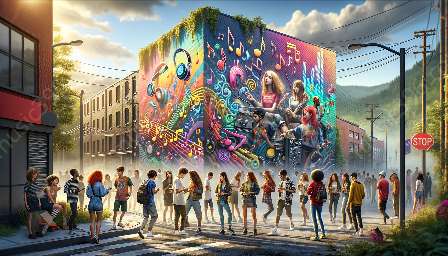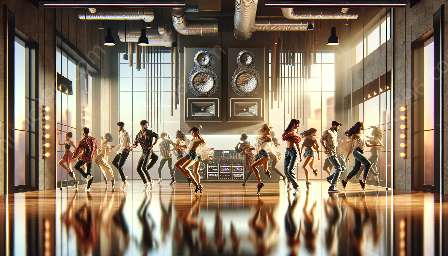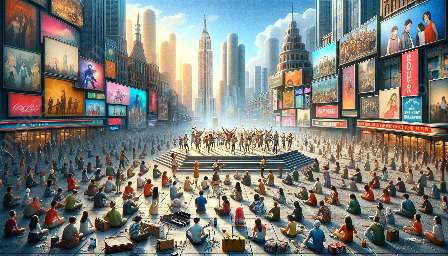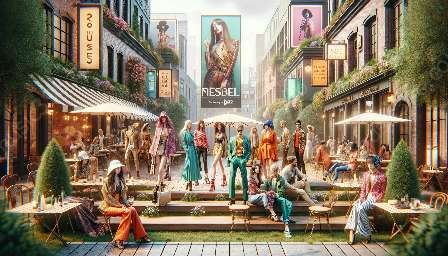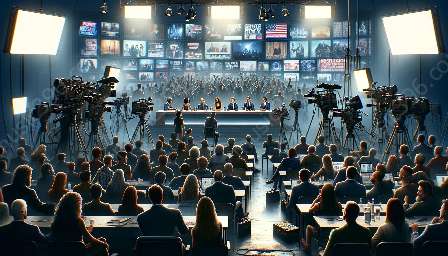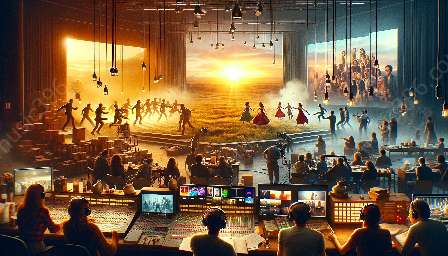Pop music and fashion hold significant influence over societal norms, shaping cultural attitudes and behaviors in profound ways. When it comes to empowerment and perpetuation of stereotypes, these two industries play a pivotal role. This topic cluster delves into the relationship between pop music, fashion, and societal norms, exploring how they can both empower and perpetuate stereotypes.
The Influence of Pop Music on Stereotypes and Societal Norms
Pop music, with its broad appeal and ability to reach massive audiences, has the potential to challenge and reshape societal norms. However, it also has the power to perpetuate stereotypes, often through lyrics, music videos, and the personas of popular artists. For instance, the portrayal of gender roles, relationships, and lifestyles in pop songs can reinforce existing stereotypes or pioneer progressive attitudes.
Empowerment in Pop Music
In recent years, pop music has increasingly become a platform for empowerment, promoting diversity, inclusivity, and social justice. Many artists use their music to advocate for marginalized communities and to break down stereotypes, celebrating individuality and embracing a range of identities and experiences. This has led to a more inclusive representation of gender, sexual orientation, and race in the pop music industry.
Perpetuation of Stereotypes in Pop Music
On the flip side, some pop music perpetuates stereotypes by glamorizing unrealistic body standards, promoting materialism, and reinforcing traditional gender norms. The objectification of women, glorification of wealth, and portrayal of toxic relationships are all examples of how pop music can perpetuate harmful stereotypes and societal norms, influencing the way audiences perceive themselves and others.
The Intersection of Fashion and Societal Norms
Fashion, as a visual and expressive art form, also plays a significant role in shaping and reflecting societal norms. The cultural impact of fashion extends to body image ideals, beauty standards, and the perpetuation of social stereotypes. Through clothing, accessories, and visual presentations, the fashion industry has the power to challenge or reinforce societal norms in a variety of ways.
Empowerment in Fashion
Empowerment through fashion can be witnessed in movements that promote body positivity, inclusivity, and individual expression. Designers, models, and influencers are increasingly using fashion as a means of breaking down traditional beauty standards, embracing diversity, and advocating for social change. Inclusive fashion shows, sustainable clothing lines, and the rise of gender-neutral designs all contribute to the empowerment of individuals and the subversion of stereotypes.
Perpetuation of Stereotypes in Fashion
At the same time, the fashion industry has faced criticism for perpetuating harmful stereotypes related to body image, race, and cultural appropriation. Fashion trends and marketing strategies often reinforce narrow beauty ideals, exclude certain groups, or appropriate elements of marginalized cultures without proper acknowledgment. This perpetuation of stereotypes through fashion can have significant repercussions on how individuals perceive themselves and their place in society.
The Synergy between Pop Music and Fashion
Pop music and fashion often intersect, creating a symbiotic relationship that reinforces cultural attitudes and societal norms. Music videos, red carpet appearances, and collaborations between musicians and fashion designers contribute to the fusion of these two influential domains. This synergy can either challenge stereotypes and norms or perpetuate them, depending on the message and imagery conveyed.
Collaborative Empowerment
Collaborations between pop musicians and fashion brands have the potential to empower individuals, promote diversity, and challenge stereotypes. By using their combined platforms to advocate for social change and inclusivity, musicians and fashion designers can influence public perceptions and inspire positive cultural shifts. This collaborative empowerment extends to the representation of diverse body types, cultural traditions, and non-conforming gender expressions.
Reinforcing Stereotypes through Synergy
Conversely, the synergy between pop music and fashion can also reinforce stereotypes, particularly when it comes to idealized beauty standards, consumerism, and gender expectations. Music videos that depict narrow definitions of attractiveness and luxury fashion campaigns that perpetuate exclusivity can contribute to reinforcing societal norms, limiting the scope of individual empowerment and expression.
Conclusion
The relationship between pop music, fashion, and societal norms is complex and multi-faceted, with both industries holding the power to empower and perpetuate stereotypes. By critically examining the impact of pop culture on societal attitudes, we can work towards a more inclusive and diverse cultural landscape, fostering empowerment and challenging harmful norms.







